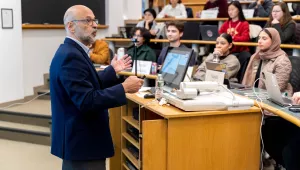Overview
This article first considers the ways in which experimental psychology and psychoanalysis hastened the obsolescence of ideas about the so-called 'primitive mind' and, in some cases, served the purposes of overtly anti-colonial politics. It then surveys the history of intelligence testing in the British Empire, which originated in the aftermath of the First World War, expanded in scale after the Second, and ultimately contributed to post-colonial development. Finally, it asks how far the case of psychology puts the very concept of 'colonial science' into question.
The history of psychology in the British Empire can be told in many ways, but at its heart is a story of unfulfilled promise and frustrated expectations. In the midst of the Second World War, the head of the psychological laboratory at Cambridge University, Frederic Charles Bartlett, proposed that recruits for the colonial services should receive training in psychology to complement the usual course in language, law and anthropology....
Read the entire article here: http://past.oxfordjournals.org/content/215/1/195.full.pdf+html
Linstrum, Erik. “The Politics of Psychology in the British Empire, 1898–1960.” Past & Present, May 2012
The full text of this publication is available via Past & Present.




